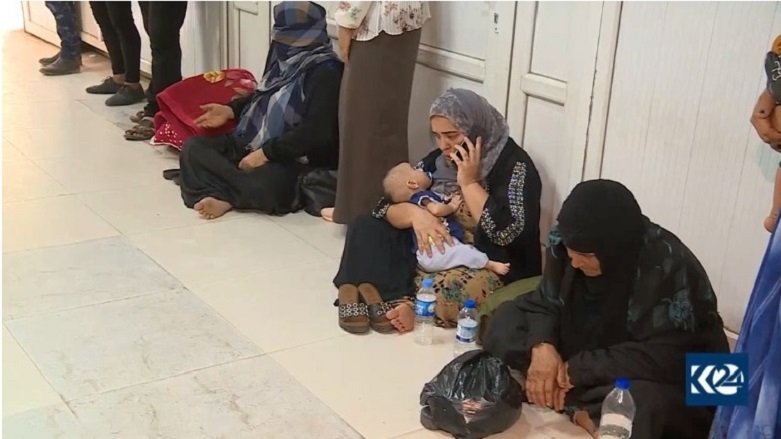Mosul's deputy governor calls on Iraq to improve condition of hospitals for residents

ERBIL (Kurdistan 24) – The people of Mosul continue to voice their concerns over the lack of much-needed services in the city, particularly in the health sector.
In a visit to several of the city’s hospitals, Deputy Governor of Mosul Sirwan Rozhbayani called on the Iraqi Ministry of Health to listen to the people’s complaints and provide residents with “decent health services.”
“We did not expect the health situation to be this dire in the hospitals,” Rozhbayani stated, urging the health ministry to find a swift solution.
Citizens complain about the lack of waste disposal at the hospitals. One resident claimed people who visit the hospitals healthy might leave sick due to the pile of waste inside the rooms and hallways.
“As you see with your eyes, the hospital lacks a proper waste disposal service,” she told Kurdistan 24.
Another citizen at the Mosul hospital said they “struggle to find the required medicines,” and said the prices are often inflated.
Nineveh, in general, and its capital of Mosul, in particular, continues to suffer from a lack of infrastructure, essential services, stability, and security. It was destroyed and damaged by the years-long war against the so-called Islamic State which emerged in mid-2014.
Khalid Ismael, head of Iraq’s Ministry of Migration and Displacement (MoDM) in Mosul, said in a press conference on Monday that “due to the shortage of services and difficulty of livelihood, almost 25 families return to the camps inside the Kurdistan Region daily.”
Mosul was freed from the Islamic State in July 2017, but almost two years since its liberation, the city remains in tatters – the western side having suffered the most – and residents complain of a chronic lack of essential public services. Since the city was liberated, only 72,000 families have returned to Mosul.
Editing by Karzan Sulaivany
(Additional reporting by Zardasht Hame)
